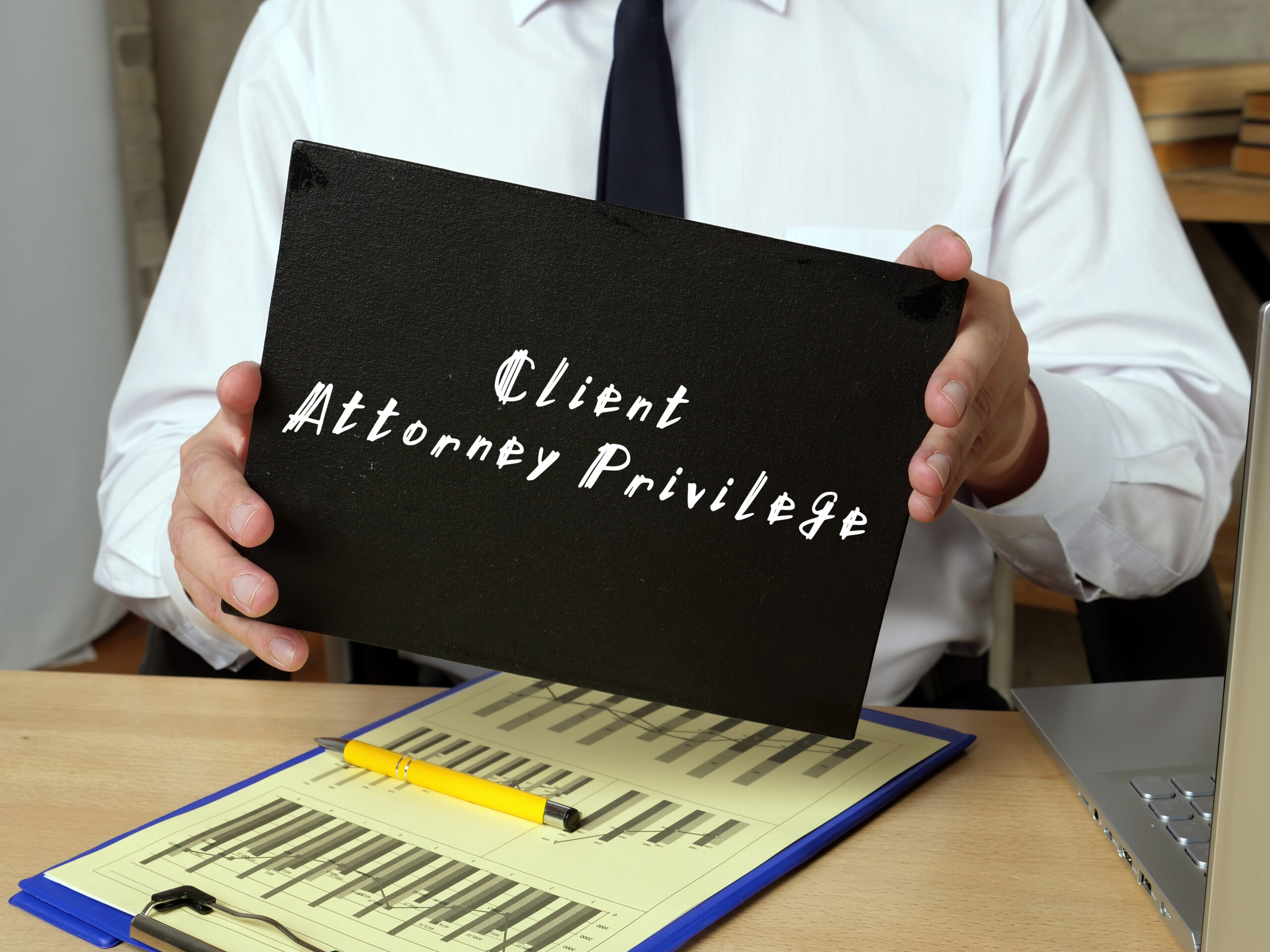“It is not unusual for IP lawyers and their clients to have multi-year attorney-client relationships where first-hand knowledge of the evolution of the client’s IP informs the context of the representation.” – NYIPLA brief
 The New York Intellectual Property Law Association (NYIPLA) filed an amicus brief last Thursday in the U.S. Supreme Court in In re Grand Jury. The petition was filed in April this year, presenting the Supreme Court with the question of whether communication involving both legal and non-legal advice should be protected by attorney-client privilege. The question has broad implications for attorney-client privileges, especially for intellectual property lawyers, says the NYIPLA brief.
The New York Intellectual Property Law Association (NYIPLA) filed an amicus brief last Thursday in the U.S. Supreme Court in In re Grand Jury. The petition was filed in April this year, presenting the Supreme Court with the question of whether communication involving both legal and non-legal advice should be protected by attorney-client privilege. The question has broad implications for attorney-client privileges, especially for intellectual property lawyers, says the NYIPLA brief.
NYIPLA makes the case that the Supreme Court should adopt “a rule which protects a dual-purpose communication if a significant purpose of the communication is to obtain or provide legal advice.”
Currently, the appeals courts are divided as to whether this rule should be adopted versus one that protects communications only if legal advice was the dominant purpose behind the communication.
The Supreme Court has granted the petition, and on November 10, the Court set the date to hear oral arguments for January 2023.
Throughout its amicus brief, NYIPLA argues that the Supreme Court should clarify the law so IP lawyers and their clients can communicate more frankly and better predict when their communications will achieve the legal standard of attorney-client privilege.
Confusion in the Courts
The Seventh Circuit, Ninth Circuit, and D.C. Circuit courts have all issued different rulings on attorney-client privilege when both legal and nonlegal advice is discussed. The D.C. Circuit ruled that attorney-client privilege applied as long as “a significant purpose” of the communication was legal advice. The Ninth Circuit ruled that if a non-legal matter was more significant in the communications, then privilege did not apply, while the Seventh Circuit ruled that dual-purpose communication can never be considered privileged.
The NYIPLA wrote in their brief, “the divide between courts of appeals as to the proper test for determining whether dual-purpose communications are privileged creates uncertainty.”
The association is worried that this unpredictability “chills frank communications between counsel and clients, impedes the ability to advise effectively, and drives up costs for clients.”
They argue that since IP lawyers offer both legal and nonlegal advice to clients due to their expertise in specialized scientific and technical areas, that dual-purpose communication should fall under attorney-client privilege. Additionally, since IP regulation is “increasingly complex,” the NYIPLA makes the case that IP lawyers advise clients on both legal and business matters.
The group believes a ruling such as that of the Seventh Circuit, which ruled all dual-purpose communication non-privileged, would jeopardize the IP rights of clients and damage communication between IP lawyers and clients.
“It is not unusual for IP lawyers and their clients to have multi-year attorney-client relationships where first-hand knowledge of the evolution of the client’s IP informs the context of the representation and allows lawyers to efficiently provide legal advice to the client,” wrote NYIPLA.
Predictability
NYIPLA is asking the Supreme Court for consistency so that lawyers and clients can predict what communications are and are not privileged:
“This Court should … hold that as long as obtaining and providing legal advice is a significant purpose of the communication, it is protected by the attorney-client privilege. Because clients can predictably apply this rule, it will allow them to fully communicate all of the relevant facts to their attorney. Their lawyers can then provide advice as to the legal and business aspects of the IP activity or commercial transaction.”
In this respect, NYIPLA prefers the D.C. Circuit ruling for a significant-purpose test over a predominant-purpose test. In the 2014 case, Kellogg, then D.C. Circuit Judge Brett Kavanaugh referred to the significant-purpose test as “clearer, more precise, and more predictable.”
NYIPLA wrote ef, “the significant-purpose test allows for frank discussion between clients and their attorneys, can be predictably applied by judges and lawyers, and is easily understood by laypeople. As such, it best fulfills the purposes of the attorney-client privilege.”
If the other tests were to be applied, the association believes too much would be left open to interpretation, as it is difficult to agree upon the primary purpose of communication or guess if a court would view it the same way. In fact, current Supreme Court Justice Kavanaugh wrote in the Kellogg D.C. Circuit ruling that determining the primary purpose of communication between lawyers and clients “can be an inherently impossible task.”
In its brief, NYIPLA offered several examples where attorney-client communication will necessarily be dual purpose. Under a significant-purpose test, clients and IP attorneys will have a better idea as to whether the communication is privileged or not. These include communication about launching a new product or acquiring IP.
If a lawyer and client are unable to speak freely about such topics, NYIPLA argued that this “may lead to excessive compartmentalization of information and hinder the free discussion of IP matters in dual-purpose communications. The client may need to relegate the lawyer to providing strictly legal advice and entrust the business information to another who applies the advice.”
Where It Goes from Here
The Supreme Court granted the petition in October and has set the date for hearing oral arguments as Monday, January 9, 2023.
Several other organizations, including the Washington Legal Foundation, the California Lawyers Association, and the Association of Professional Responsibility Lawyers, have submitted amicus briefs to the Supreme Court.
The petitioner is represented by lawyers from Hochman Salkin Toscher and Munger and Tolles & Olson LLP. Irena Royzman of Kramer Levin authored the NYIPLA brief.
Image Source: Deposit Photos
Image ID: 435735040
Author: rummess

![[IPWatchdog Logo]](https://ipwatchdog.com/wp-content/themes/IPWatchdog%20-%202023/assets/images/temp/logo-small@2x.png)

![[Advertisement]](https://ipwatchdog.com/wp-content/uploads/2024/04/UnitedLex-May-2-2024-sidebar-700x500-1.jpg)
![[Advertisement]](https://ipwatchdog.com/wp-content/uploads/2024/04/Patent-Litigation-Masters-2024-sidebar-700x500-1.jpg)

![[Advertisement]](https://ipwatchdog.com/wp-content/uploads/2021/12/WEBINAR-336-x-280-px.png)
![[Advertisement]](https://ipwatchdog.com/wp-content/uploads/2021/12/2021-Patent-Practice-on-Demand-recorded-Feb-2021-336-x-280.jpg)
![[Advertisement]](https://ipwatchdog.com/wp-content/uploads/2021/12/Ad-4-The-Invent-Patent-System™.png)






Join the Discussion
4 comments so far.
Anon
November 22, 2022 07:57 pmPro Say,
The case is that attorney client privilege does not — and should not — be as extensive as your post indicates.
This is so because such a blanket is open to abuse, especially under cover of discussing NON-law items (such as business plans).
Such discussion may not invoke an otherwise present ethical duty of the attorney.
Mind you, this split does NOT impact in any way whatsoever that which is appropriate to already fall under the attorney client privilege.
One does not need more.
One should not seek more.
There is NO “impact” to speaking to an attorney – for legal matters (as it should be).
Pro Say
November 22, 2022 07:26 pmAnon, as others have pointed out over the years, such oblique comments as yours here lend little-to-nothing to the conversation.
Join me in stating your case as I have done. Inform me.
But regardless, most important regarding this matter is this: Non-attorney clients and potential clients should not be put in the position of not knowing what they can and cannot say / reveal / share with their / an attorney.
Anon
November 22, 2022 06:26 pmPro Say,
You clearly do not understand what the aspects of privilege are for. Everyone is entitled to an opinion, but it only makes sense to boldly proclaim informed opinions.
This one is not one of your bests.
Pro Say
November 22, 2022 05:56 pmHere a parse, there a parse, everywhere a parse . . .
Dual-purpose communications should always be considered privileged.
Always.
Indeed, courts having the ability to decide for themselves whether or not specific communications “qualify” for privilege . . . reminds one of courts deciding whether or not patent claims are “too abstract.”
Look how that’s crippled U.S. innovation.
This is America.
What — are we supposed to figure out what we can and cannot speak to our attorneys about? Are our attorneys? How do we or they do that?
Clients deserve to be able to speak and deal with their attorney’s freely.